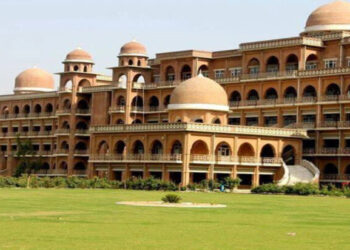The World Economic Forum (WEF) has appreciated Pakistan’s environmental policies, climate action plan, and response to the ongoing coronavirus pandemic. Prime Minister Imran Khan heaped praised on his government’s policies while highlighting the initiatives. However, these steps are not enough to counter one of the biggest challenges of the 21st century.
Pakistan ranks 7th among the most adversely affected countries due to climate change. The negative impact on our weather pattern is already evident; rising temperatures, major flooding, and prolonged droughts. According to Met Office, Pakistan received much less rainfall in January 2021 as compared to previous years, making it the 17th driest month in 60 years.
The United Nations reported that just 2.2 percent of the total land in Pakistan forms the forest area. Pakistan, on one hand, is fast losing the coastline to seawater intrusion, while on the other, glaciers are fast melting, resulting in permanent reductions in water flows in our rivers. With the changing cropping calendar, Pakistan’s food insecurity is also under increasing threat of climate change.
The existential threat of climate change and global warming has been caused by the greed of the advanced industrialized nations. The most worrisome of all is the fact that we have no effective planning for the looming threat. With a limited and fast-closing window of opportunity to tackle this global challenge, it is more important now for Pakistan to engage in global climate change discourse and accordingly adjust its development agenda.
The ruling PTI, however, has taken some measures to tackle the climate challenge. Imran Khan’s Billion Tree Tsunami programme, launched in 2014, has been converted into a Ten Billion Tree Tsunami programme to cover the whole of Pakistan. The premier had also announced the launch of ‘Protective Area Initiative’ under which 15 national parks will be built in all federating units of the country. As part of the initiative, the coverage of the protected areas will be enhanced to 15% of the total land area in the country.
While some measures have successfully been implemented in certain areas, we do not see much seriousness on the part of policymakers to take more action to tackle the climate challenge. As one of the most climate-vulnerable countries, Pakistan needs to embark on low carbon and climate compatible development. The government must develop a comprehensive framework linking its mitigation efforts to its industrial, agricultural and energy-related policies and enforce it to reverse the impact of fast-changing climatic conditions.



























